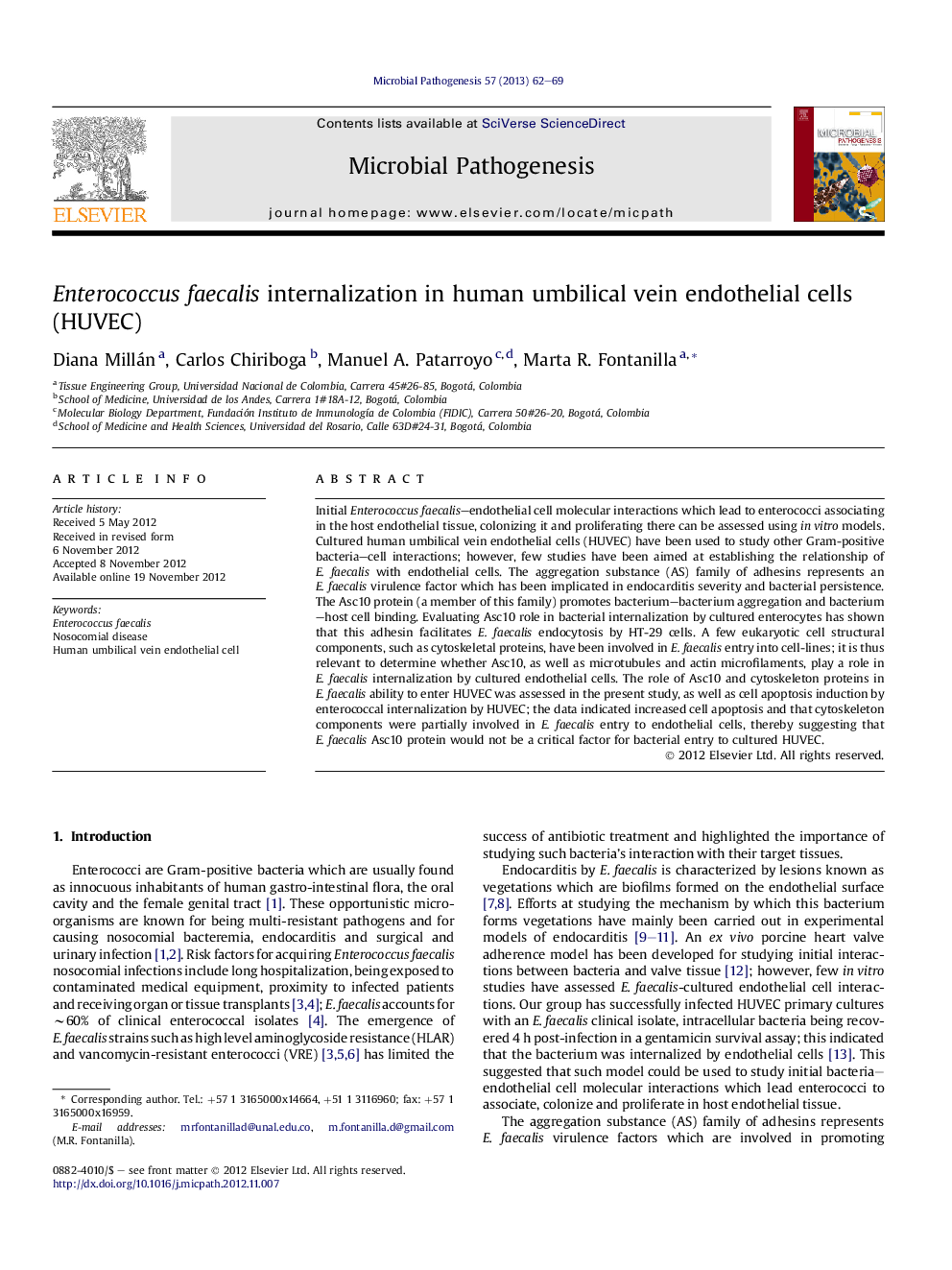| کد مقاله | کد نشریه | سال انتشار | مقاله انگلیسی | نسخه تمام متن |
|---|---|---|---|---|
| 6136323 | 1593726 | 2013 | 8 صفحه PDF | دانلود رایگان |

Initial Enterococcus faecalis-endothelial cell molecular interactions which lead to enterococci associating in the host endothelial tissue, colonizing it and proliferating there can be assessed using in vitro models. Cultured human umbilical vein endothelial cells (HUVEC) have been used to study other Gram-positive bacteria-cell interactions; however, few studies have been aimed at establishing the relationship of E. faecalis with endothelial cells. The aggregation substance (AS) family of adhesins represents an E. faecalis virulence factor which has been implicated in endocarditis severity and bacterial persistence. The Asc10 protein (a member of this family) promotes bacterium-bacterium aggregation and bacterium-host cell binding. Evaluating Asc10 role in bacterial internalization by cultured enterocytes has shown that this adhesin facilitates E. faecalis endocytosis by HT-29 cells. A few eukaryotic cell structural components, such as cytoskeletal proteins, have been involved in E. faecalis entry into cell-lines; it is thus relevant to determine whether Asc10, as well as microtubules and actin microfilaments, play a role in E. faecalis internalization by cultured endothelial cells. The role of Asc10 and cytoskeleton proteins in E. faecalis ability to enter HUVEC was assessed in the present study, as well as cell apoptosis induction by enterococcal internalization by HUVEC; the data indicated increased cell apoptosis and that cytoskeleton components were partially involved in E. faecalis entry to endothelial cells, thereby suggesting that E. faecalis Asc10 protein would not be a critical factor for bacterial entry to cultured HUVEC.
⺠Enterococcus faecalis accounts for â¼60% of clinical enterococcal isolates. ⺠Underlying molecular interactions leading to endocarditis by this pathogen have been poorly studied. ⺠We show that E. faecalis is internalized by HUVEC. ⺠Internalization partially depends on host cell actin and microtubule polymerization. ⺠E. faecalis Asc10 protein is not a critical factor for bacterial entry into cultured HUVEC.
Journal: Microbial Pathogenesis - Volume 57, April 2013, Pages 62-69